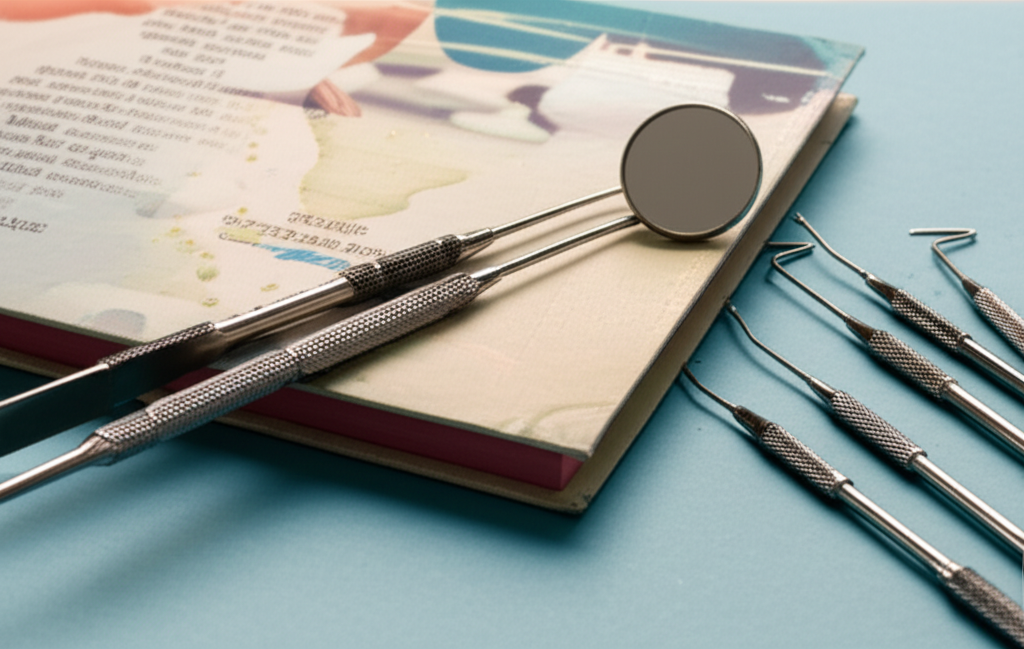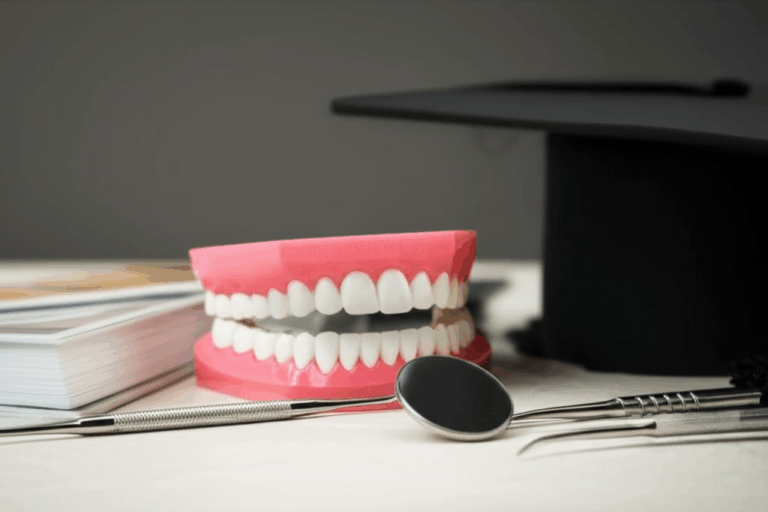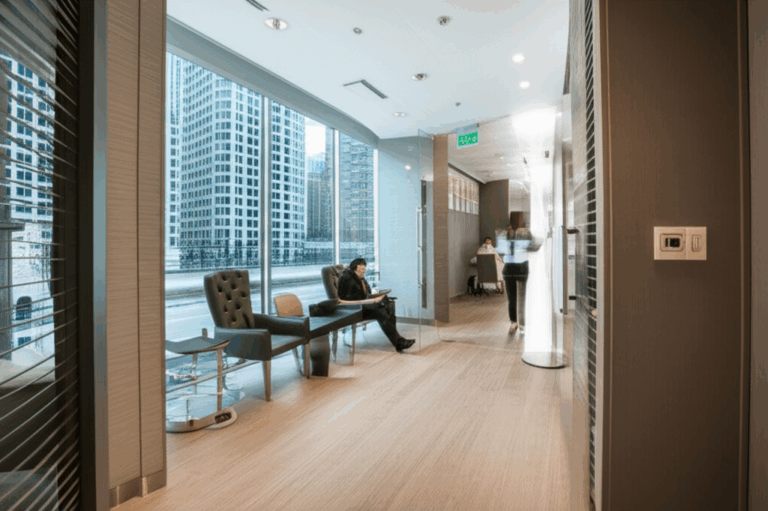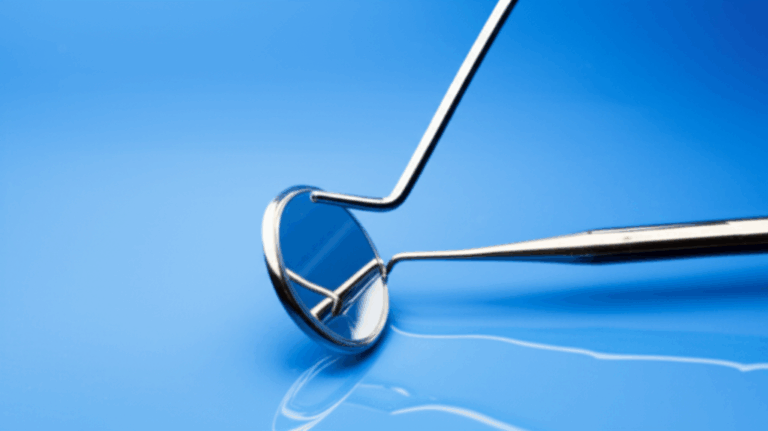
How to Become a Dentist in Portugal: Your Complete Guide
Want to help people smile with confidence in one of Europe’s most beautiful countries? Becoming a dentist in Portugal may be your perfect path—whether you’re a student dreaming big or a dentist hoping to work abroad. In this easy-to-follow guide, you’ll learn every step from school to opening your own dental clinic. Don’t miss this chance to unlock a job that makes a real difference!
Table of Contents
Introduction: Why Choose Dentistry in Portugal?
Have you ever wondered what it’s like to fix teeth and make people feel better about their smile? That’s what dentists do, and in Portugal, people really respect them. Portugal offers good-quality schools, pretty views, and a welcoming atmosphere for everyone. Students from many countries pick Portugal because dental schools are good, costs are fair, and dentists have a steady job.
Imagine welcoming your first patient, learning from smart teachers, or even running your own practice in sunny Lisbon or Porto. Does that sound fun? This guide shows you how to reach that dream—step by step.
What Does It Mean to Study Dentistry in Portugal?
Studying dentistry in Portugal is not just about classes. Portuguese dental education uses the “Integrated Master’s Degree” setup. You will study for 5 years, earning 300 ECTS credits. The program mixes lessons, practice in labs, and real work with patients. In this time, you’ll learn things like dental cleaning, fixing cavities, and even simple surgeries.
It’s not easy, but it’s worth it. You need to be hard-working, curious, and really want to help others. If you do your best, you’ll finish ready to join Portugal’s dental world as a dentist (Médico Dentista).
What You’ll Learn
- First Years (1-2): Science basics like biology and chemistry, dental materials
- Later Years (3-5): Treating real patients, learning about braces, root canals, gum problems, kids’ teeth, fake teeth, and more
- Practice: Internships in hospitals or dental clinics
Which Are the Best Dental Schools in Portugal?
Picking a good school is important. Portugal has public and private schools to choose from.
Public Universities:
- University of Lisbon (Faculdade de Medicina Dentária da Universidade de Lisboa, FMDUL): One of the oldest, with good technology and research.
- University of Porto (Faculdade de Medicina Dentária da Universidade do Porto, FMDUP): Well-known, great clinical skills.
- University of Coimbra: Balances book learning and practice.
Private Schools:
- Egas Moniz School of Health & Science: Good teaching and new equipment.
- Universidade Católica Portuguesa (UCP): Has a dental degree too.
Public schools usually have lower tuition and are popular with locals, while private schools often have smaller groups and may be simpler for foreigners to get in. No matter what, make sure the degree is accepted by the Ordem dos Médicos Dentistas (OPMD).
How Do You Apply to a Portuguese Dental School?
Here’s a simple look at who can apply and how.
For EU/EEA Students:
- High school diploma (ensino secundário): Show you finished high school.
- Entrance exams (provas de ingresso): Usually in biology, chemistry, and maybe math.
- Numerus Clausus: Only a set number of new students accepted per year. It can be tough to get in.
For Non-EU/EEA Students:
- Diploma check: Your diploma must be checked and approved by DGES.
- Special process (concurso especial): Some schools have special applications for foreign students.
- Language: Most schools teach in Portuguese, so you’ll need to speak it pretty well, at B2 or C1 level. Some schools might check with an interview.
- Visa: You need a student visa, along with documents like your passport, school acceptance letter, and proof you can pay for life in Portugal.
What You Need for Your Application
- School grades
- A note explaining why you want to be a dentist
- Recommendation letters
- Exam or interview results
- Language certificate
Tip: Start early! Deadlines are different at every school.
What Are the Costs of Studying Dentistry in Portugal?
Worried about money? Here’s a simple cost breakdown:
| Program Type | EU/EEA Tuition Per Year | Non-EU Tuition Per Year | Private Tuition Per Year |
|---|---|---|---|
| Public University | €697 – €1,250 | €3,000 – €7,000 | €8,000 – €15,000+ |
- Rent: €300 – €600/month, depending on the city
- Food: €150 – €300/month
- Travel: €30 – €50/month
- Books & supplies: €200+/year
Living in Portugal is usually cheaper than many other Western European places. Some top students might get scholarships. Ask at each school for more help.
How Can International Dentists Work in Portugal?
Maybe you’re already a dentist in your country and want to move. What you have to do depends on your passport.
If You’re from the EU/EEA:
- Automatic approval: Thanks to EU law, your degree is accepted. Just join the OPMD and show your documents.
- What you’ll need: Your diploma, ID, language certificate, and a paper showing good record from your home country.
If You’re from Outside the EU:
It’s a little more work, but it can be done.
- Degree check (Reconhecimento Específico): Apply to a Portuguese university so they can look at what you studied.
- Extra school: They may want you to take extra classes, do some practice, or pass some exams so you match Portuguese standards.
- Language: You need B2 or C1 level Portuguese to register with OPMD.
- Visa and local papers: Apply for a work visa.
This process can take 6 months up to 2 years. It depends on your paperwork, what you studied before, and which school checks your documents.
What Is the Ordem dos Médicos Dentistas (OPMD) and Why Is It Important?
The Ordem dos Médicos Dentistas (OPMD) is the official group for all dentists in Portugal. You can’t work as a dentist—even after graduating—until you join.
What does the OPMD do?
- Sets up rules and ethics for dentists
- Keeps the list of all dentists in Portugal
- Wants dentists to always keep learning and improving (Continuous Professional Development, or CPD)
- Makes sure only well-trained people treat patients
Joining OPMD gives you the green light to work as a real dentist in Portugal. To join, turn in your diploma, language proof, and a background check, pay a starting fee (about €200-€500), and pass an ethics test.
What Career Opportunities Await Dentists in Portugal?
Dentists in Portugal have steady work and many options.
Where Can You Work?
- Public health: Jobs in public clinics and hospitals, but not many spots are open.
- Private clinics: This is where most dentists end up working, both in cities and small towns.
- Special areas: You can work in braces, gum care, kid’s teeth, oral surgery, and more.
Demand & Salary
Small towns need dentists the most, since not many work out there. In big cities, you have more competition, but usually more patients.
| Experience Level | Monthly Salary (gross) |
|---|---|
| New Dentist | €1,200 – €2,000 |
| Experienced Dentist | €2,500 – €5,000+ |
How much you make depends on your job, extra training, and the patients you see. Dentists who own a clinic or do special things can earn a lot more.
Special Types of Dentistry
- Braces (Orthodontics): Straightening teeth.
- Oral Surgery: Doing simple dental surgeries.
- Gum care (Periodontics): Helping people with gum problems.
- Root Canals (Endodontics): Treating pain inside teeth.
To get really good at any of these, you usually need extra school after your main degree.
How to Start Your Own Dental Practice in Portugal?
Want to be your own boss? Many dentists hope to open their own place one day. It’s a big job, but it gives a lot of freedom.
How to Do It
Owning your own practice means you have to think about business, money, and patients—not just teeth!
What Should Foreign Dentists Know Before Moving?
Moving to another country is more than just filling out forms. You’ll meet new ways of living.
Portuguese Language: While in big cities many people speak some English, you need Portuguese for classes, tests, and talking to patients. Signing up for a language class will really help.
Fitting In: Portugal is friendly and relaxed. Getting along with your team and earning trust from patients matters a lot too.
Building Connections: Try to meet mentors, join dental groups, go to events, and make contacts. This will help when you’re looking for a job.
Papers and Rules: Always keep your visa and documents up-to-date, and stay informed about any changes.
Tip: Keep learning forever! Dentists in Portugal must do CPD (Continuing Professional Development) every year. It’s a good way to get better at your job.
Conclusion: Your Journey to a Dream Dental Career
Becoming a dentist in Portugal takes effort, but it’s life-changing. You’ll fill your mind with science, see patients get happier, and maybe run your own office too. Remember, you need to plan well—know your way around school, speak Portuguese, and get your license.
If you like science, want to help others, and are looking for a solid job, Portugal is a welcome place—with plenty of smiles. Start now, ask questions, and keep learning!
Frequently Asked Questions
Q: How long does it take to become a dentist in Portugal?
A: Usually 5 years at university, plus signing up with the OPMD. If you trained somewhere else, getting your papers approved might take longer.
Q: Can I study dentistry in English in Portugal?
A: Most programs are in Portuguese right now. Knowing Portuguese is key.
Q: Is a Portuguese language certificate needed?
A: Yes! Schools and OPMD usually want proof at B2 or C1 level.
Q: How much do dentists earn in Portugal?
A: New dentists make about €1,200–2,000/month. Experience brings more, up to €2,500–5,000 or more.
Q: How do I get my dental degree accepted in Portugal?
A: If you’re from the EU, it’s usually quick. Others must ask a Portuguese university to check their diploma.
Summary: What to Remember
- Portugal has good dental schools and a growing need for dentists.
- The path is a Integrated Master’s Degree called Médico Dentista.
- Getting in can be tough. Have your documents ready and polish your Portuguese!
- Dentists from outside Portugal: be sure your degree matches, your language is strong, and you register the right way.
- Registering with OPMD is necessary for any dental job.
- Dentist jobs are strongest in small towns and when you do special work.
- Keep studying, keep a positive attitude, and speak good Portuguese.
- You can open your own clinic—be ready to think about both teeth and business!
- Work with a modern china dental lab for top dental work.
- For the best in prosthetics, look for experts in dental ceramics lab and implant work.
- For step-by-step help, check out a handy dental practical guide.
Smile wide, study hard, and your future as a dentist in Portugal can come true!








